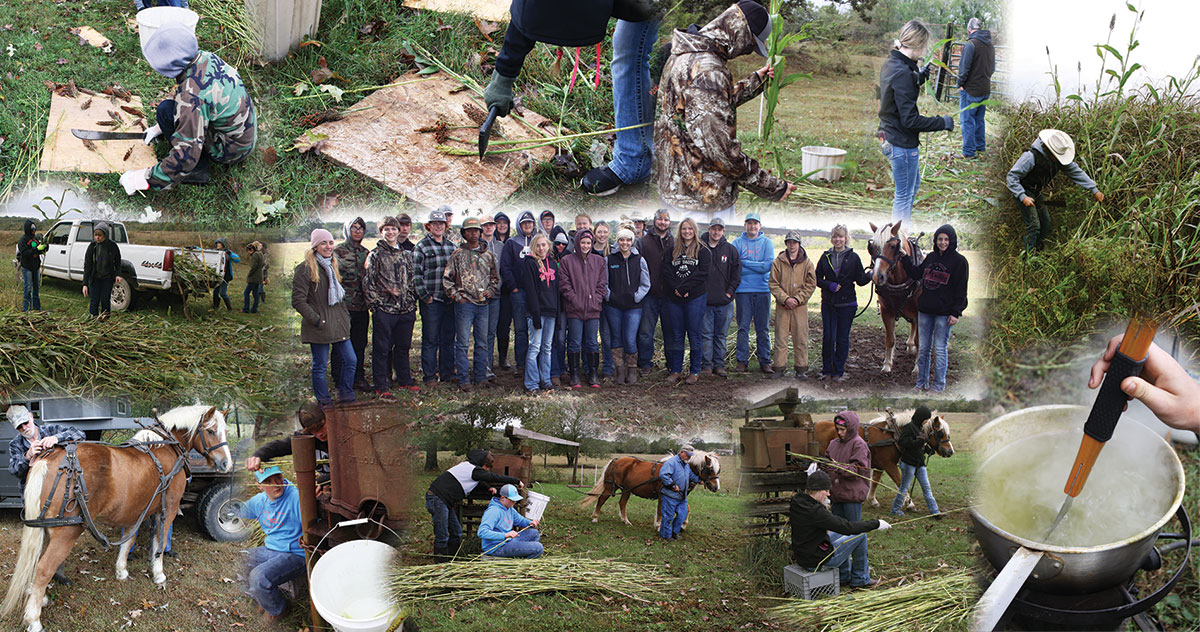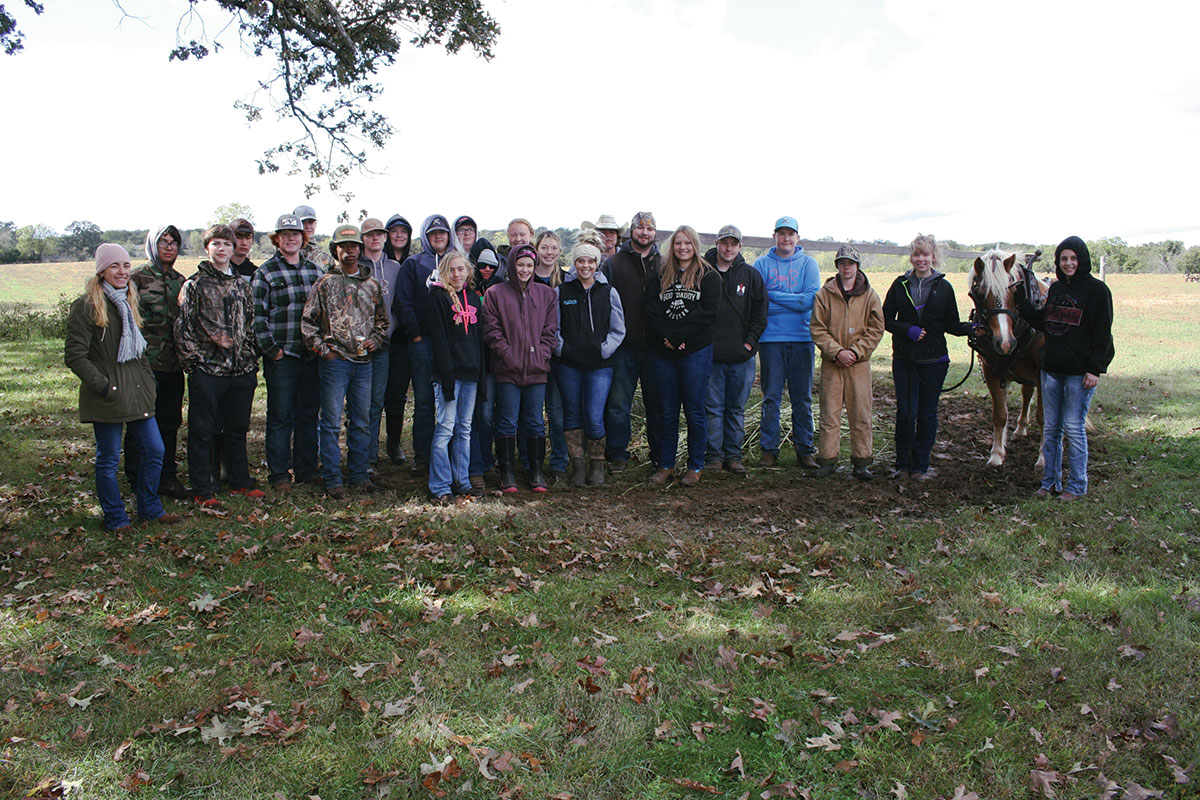
FFA members team up with Camden County, Mo., family for some old-fashioned farming
Agricultural technology is continually changing, but there are lessons to be learned from the past.
For the last two years, members of the Stoutland FFA have taken part in a living agricultural history lesson.
The Shaw family has allowed the chapter to plant sorghum on their family’s rural Camden County, Mo., farm. When the crop is ready for harvest, members chop and strip the cane, by hand, and process it into sorghum with antique equipment the Shaws used for more than 50 years.
Stoutland FFA Advisor Zane Lowrance said the outdoor classroom provides students with the opportunity to have a hands-on lesson in crop production, as well as a glimpse at how agriculture has evolved.
“This is just a small part of the historical side of agriculture,” Zane said. “Today, everyone raises cattle or some other form of livestock, and no one does this type of thing anymore. This is an opportunity to come out and get the kids involved in learning, which is what we do in FFA.”
Zane admitted the sorghum-making process was something he had not experienced until last year.
“I had watched some videos about it and wasn’t really sure what I had gotten us into,” he said. “It’s worked out well. For me, as an agriculture teacher, it’s good to be still involved in this form of agriculture because we are so far removed from production agriculture, so getting a glimpse of that helps me be a better teacher.”
As harvest day approached, Zane said FFA members were excited to see the product of their labor.
“Some of them said they couldn’t wait to try the sorghum this year, others weren’t so sure,” he said with a laugh, as his students gathered armloads to cane on a cold, blustery October day. “They are enjoying it, which is what FFA is all about.”
Pam Shaw’s parents, Rice and Janice Houston, moved to the farm in the early 1960s as sharecroppers, and eventually bought the farm. That’s when Rice began combing the countryside for the equipment that is still used today, including the horse-powered press.
“My grandpa, Elbert Shelton, would be out cutting cane in the 1970s, and he was born in 1900, so he was in his 70s,” Pam recalled. “It’s been a lot of fun, and I like it because it’s not something they are going to get in the store. When I was a kid, stripping cane was work, but you got to play with all of your cousins for the day.”
Pam’s husband Allen Shaw said when the family had their own sorghum-making days, it was an event that drew in friends, family and neighbors for miles around.
“In years past, when we had a big cane patch, it would take us two to three days to get through all of it,” he said. “The longest process is cooking. With what we have here, we will be lucky to get three or four quarts.”
The harvest by the FFA members may not produce a large quantity of sorghum, but the day is more about showing a new generation the ways of the past.
“They learn a little history,” Allen said. “There really aren’t too many people who even mess with sorghum anymore. You’ll see it down around Silver Dollar City and places like that, but not many people make it on their farms anymore.”
The cane for this year’s harvest came from seed heads harvested last year, but Zane and the Shaws hope to step up production next year with a new variety.
“We’re going to look at getting some seed from a family that does a big harvest every two or three years,” Allen said. “The family doesn’t buy any sugar and uses only what they make for their sweetener.”
Zane is hopeful the chapter can purchase additional equipment, yet still use the antique press and other equipment owned by the Shaws.
“I just think this is a great event and activity to get the kids out and involved,” Zane said. “I am all game for growing more next year. I think having a second press and being more productive.”
Zane added that the project is at the “will” of the Shaw family, but he hopes to one day make the FFA-produced sorghum available as a fundraiser.
“We had people asking us last year if they could get some,” he said. “I would consider it, but I honestly just like getting the kids out and letting them get the rewards of it.”







